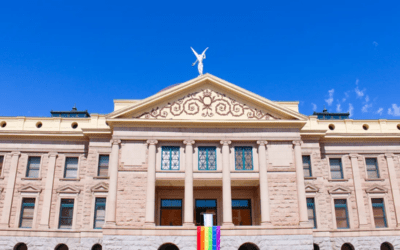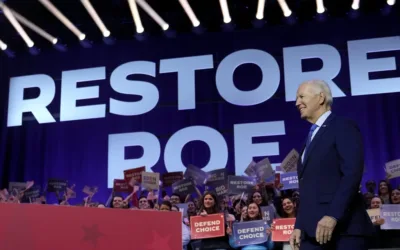
President Donald Trump tours a section of the border wall, Tuesday, June 23, 2020, in San Luis, Ariz. (AP Photo/Evan Vucci)
Despite questions as to the wall’s legality, the Trump administration celebrated the completion of its 200th mile last week.
President Donald Trump’s border wall was handed a funding setback last week when the court agreed with a coalition of border states and environmental groups that the $2.5 billion money transfer from military construction projects to help pay for the wall had unlawfully sidestepped Congress and that building the wall would pose environmental threats.
On the other hand, the Supreme Court declined on Monday to hear a challenge from environmental groups that could have stopped construction in its tracks.
The groups, which includes The Center for Biological Diversity, the Animal Legal Defense Fund, Defenders of Wildlife, and the Southwest Environmental Center, had challenged a federal law that allows the secretary of Homeland Security to waive any laws necessary to allow the quick construction of border fencing.
The conservation groups argued that the law violates the Constitution’s separation of powers, but a lower court had dismissed the case.
A Funding Setback
The Supreme Court originally acted in favor of the wall last year, when it gave the go-ahead to tap billions of dollars in Pentagon funds to replace barriers along the border with Mexico in Arizona, California and New Mexico with more robust fencing.
But last week, the 9th U.S. Circuit Court of Appeals shut down the Trump Administration’s siphoning of Pentagon funds.
But much of the money had already been spent by the time last week’s verdict was announced. The Trump administration recently made a $1.3 billion deal with an Arizona company and celebrated the completion of the wall’s 200th mile.
Despite the ruling, it doesn’t look like construction will stop any time soon. The White House said the decisions won’t interfere with its ability to continue building the wall and noted that the Supreme Court has overturned many of the appeals court’s rulings.
For Now, a Win
The American Civil Liberties Union celebrated the unlawful funding ruling, calling it a “a win for the rule of law, the environment, and border communities.” The advocacy group, which is one of the plaintiffs in the case, said it will “be back in front of the Supreme Court soon to put a stop to it completely.”
The 9th Circuit ruled that the Trump administration not only lacked the authority to authorize the transfer of funds, “but also violated an express constitutional prohibition designed to protect individual liberties.”
The vote on both rulings was 2-1 with judges appointed by former President Bill Clinton in the majority and a Trump nominee dissenting.
RELATED: Trump’s Border Wall Leaves Mountains Blasted and Saguaros Uprooted
The panel said the government was proceeding with border wall construction without ensuring compliance with any environmental regulations, thereby harming the interests of members of the Sierra Club–– another plaintiff, who visits the border region for hiking, bird watching and other recreational activities.
The panel also held that the government failed to show that construction would halt the flow of illegal drugs. It said the administration had cited drug statistics but didn’t address how the wall would have an impact on the problem.
But the appeals courts haven’t been united in deciding the funds transfer was illegal. After the $2.5 billion transfer of military funds, the Pentagon diverted another $3.6 billion. Last January, an appeals court in New Orleans ruled in favor of the move saying it could be spent.
Not a Victimless Crime
Both sums of money diverted from the Pentagon to the wall caused more than 100 military projects to be canceled or put on hold, including at least one in Arizona.
The Trump administration took away $30 million meant for the construction of an equipment building at Fort Huachuca. (The fort did get its money back, however, when the Pentagon shifted money over from its Europe and Middle East operations budget.)
After the initial announcement that the project would be deferred, Democrats pushed back on Sen. Martha McSally’s support for Trump’s plan and her broken promise that military projects in Arizona would not be put on the backburner for the wall.
McSally defended the delay of the fort’s construction, saying a need for environmental cleanup would have pushed back the project anyway.
But Mark Kelly, McSally’s challenger, said at the time she failed “to put Arizona first.”
“Fort Huachuca and our national security are suffering the consequences of her political maneuvering,” he said.
The Associated Press contributed to this report.
Support Our Cause
Thank you for taking the time to read our work. Before you go, we hope you'll consider supporting our values-driven journalism, which has always strived to make clear what's really at stake for Arizonans and our future.
Since day one, our goal here at The Copper Courier has always been to empower people across the state with fact-based news and information. We believe that when people are armed with knowledge about what's happening in their local, state, and federal governments—including who is working on their behalf and who is actively trying to block efforts aimed at improving the daily lives of Arizona families—they will be inspired to become civically engaged.

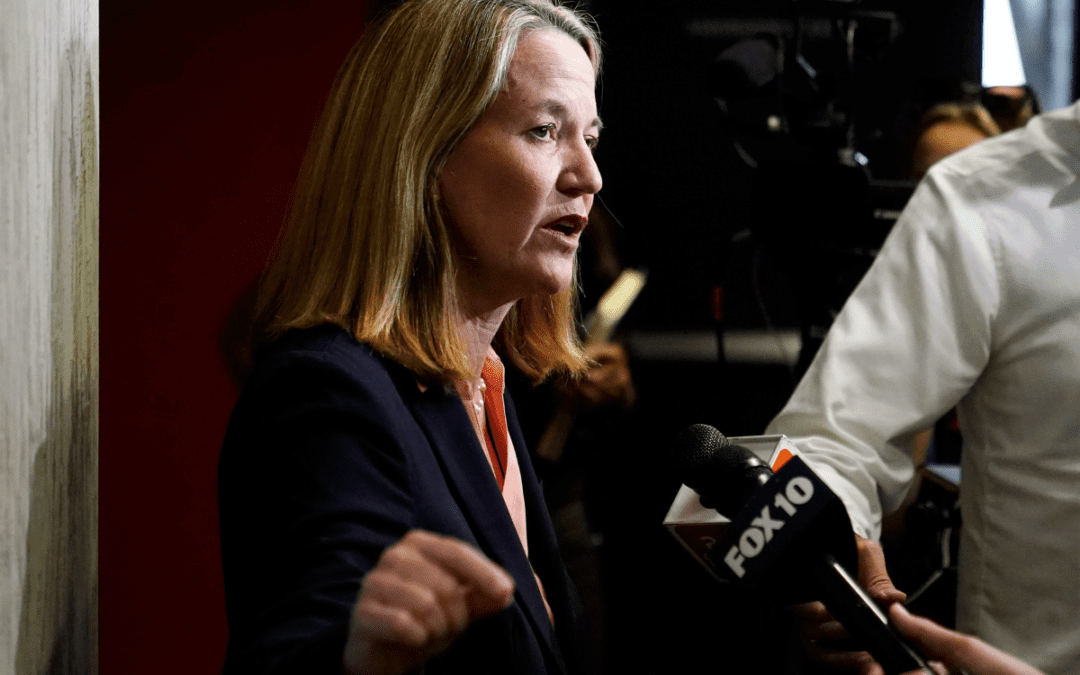
BREAKING: AG Kris Mayes sues rental corporations for conspiratorial price-fixing
It looks like, legally speaking, rent really may be “too damn high.” Arizona Attorney General Kris Mayes announced Wednesday a lawsuit against nine...
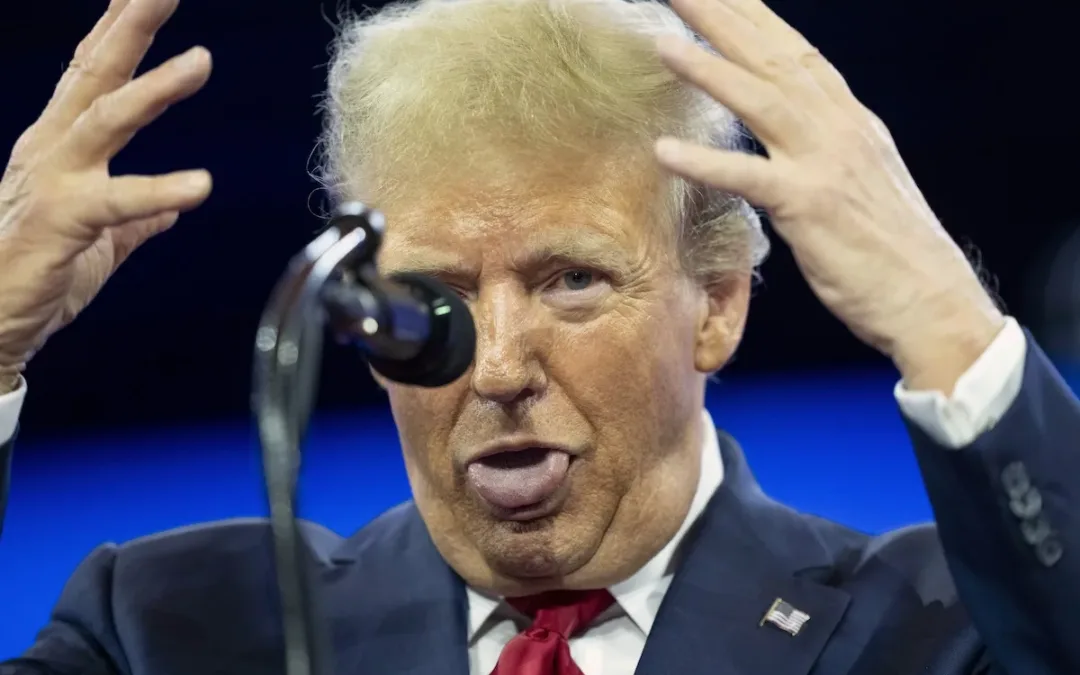
Op-ed: Trump’s journey from hosting The Apprentice to being the biggest loser
Leading up to the 2016 election, Donald Trump crafted an image of himself as a successful businessman and a winner. But in reality, Trump has a long...
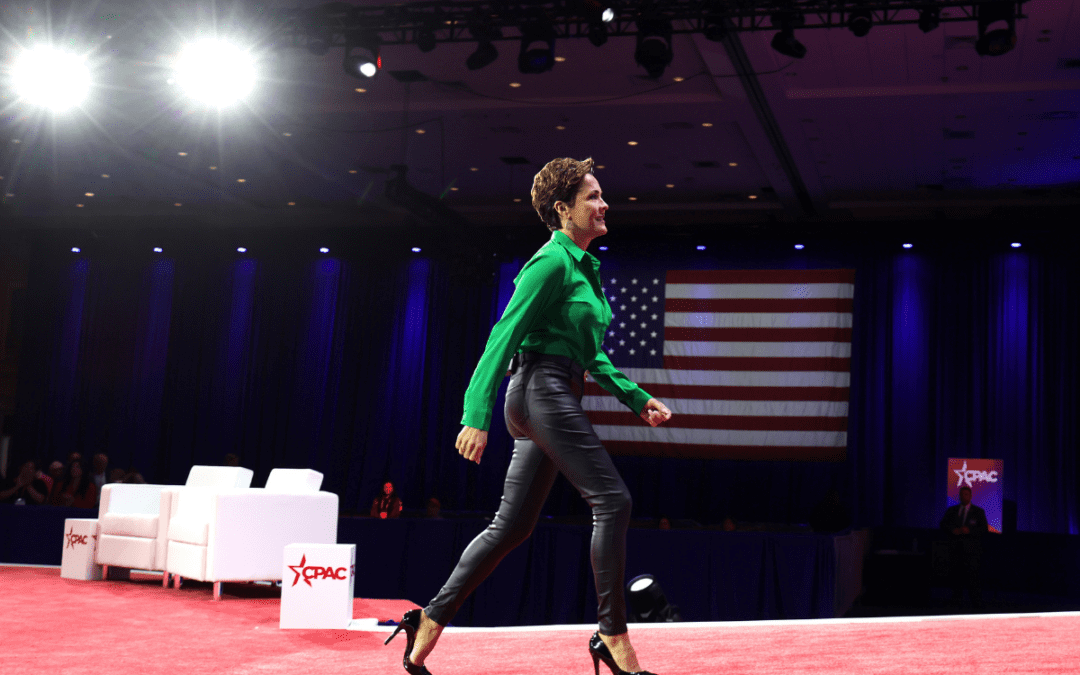
Kari Lake’s plan for the US Senate: ‘The end of democracy’
The world’s most far-right political leaders flocked to National Harbor, Maryland, last week for a conservative conference where attendants idolized...

Flight attendants picket at more than 30 airports in ‘unprecedented’ show of solidarity
Hundreds of flight attendants picketed at Phoenix Sky Harbor Airport last week, calling attention to stagnant wages with low purchasing power, poor...




